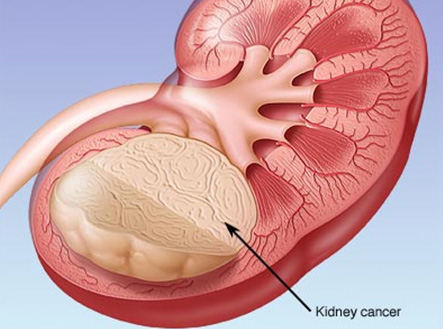Scientists have discovered a new kidney cancer kinesin
Recently, an article called VHL substrate transcription factor ZHX2 as an oncogenic driver in clear cell renal cell carcinoma was published in the journal Science. A potential therapeutic target for kidney cancer with the same genetic variation has been found to be known by scientists to cause excessive blood vessels, which helps to provide nutrition for the tumor. This latest discovery demonstrates a potential new cancer-driven pathway.
More than 90% of clear cell renal cell carcinoma has a genetic change that leads to the loss of the tumor suppressor gene (VHL). In this new study, the researchers identified a new downstream effect of this genetic change to help promote kidney cancer, and they found that an excessive accumulation of a protein called ZHX2 in these cells contributes to activate other signals that promote cancer growth. These findings suggest that ZHX2 is a potential novel therapeutic target for clear cell renal cell carcinoma.
Clear cell renal cell carcinoma is one of the most common types of kidney cancer, accounting for approximately 70% of all kidney cancer cases. More than 90% of patients with clear cell renal cell carcinoma has mutations or changes in genes that cause loss of VHL function. When the function of VHL is lost, cells can accumulate signals that trigger blood vessel growth.
These researchers have developed a screening technique to discover new molecules that may help promote cancer when VHL is lost. This led them to identify kidney cancer cells that lack VHL and usually have more ZHX2. By removing ZHX2 from the laboratory model, they are able to inhibit the growth, infiltration, and spread of cancer cells. In addition, they observed that it is associated with signals that contribute to the growth of renal cancer cells.
Wuhan EIAab Science Co., Ltd has developed several related kit. Welcome scientific research workers to choose and purchase.
More than 90% of clear cell renal cell carcinoma has a genetic change that leads to the loss of the tumor suppressor gene (VHL). In this new study, the researchers identified a new downstream effect of this genetic change to help promote kidney cancer, and they found that an excessive accumulation of a protein called ZHX2 in these cells contributes to activate other signals that promote cancer growth. These findings suggest that ZHX2 is a potential novel therapeutic target for clear cell renal cell carcinoma.
Clear cell renal cell carcinoma is one of the most common types of kidney cancer, accounting for approximately 70% of all kidney cancer cases. More than 90% of patients with clear cell renal cell carcinoma has mutations or changes in genes that cause loss of VHL function. When the function of VHL is lost, cells can accumulate signals that trigger blood vessel growth.
These researchers have developed a screening technique to discover new molecules that may help promote cancer when VHL is lost. This led them to identify kidney cancer cells that lack VHL and usually have more ZHX2. By removing ZHX2 from the laboratory model, they are able to inhibit the growth, infiltration, and spread of cancer cells. In addition, they observed that it is associated with signals that contribute to the growth of renal cancer cells.
Wuhan EIAab Science Co., Ltd has developed several related kit. Welcome scientific research workers to choose and purchase.
